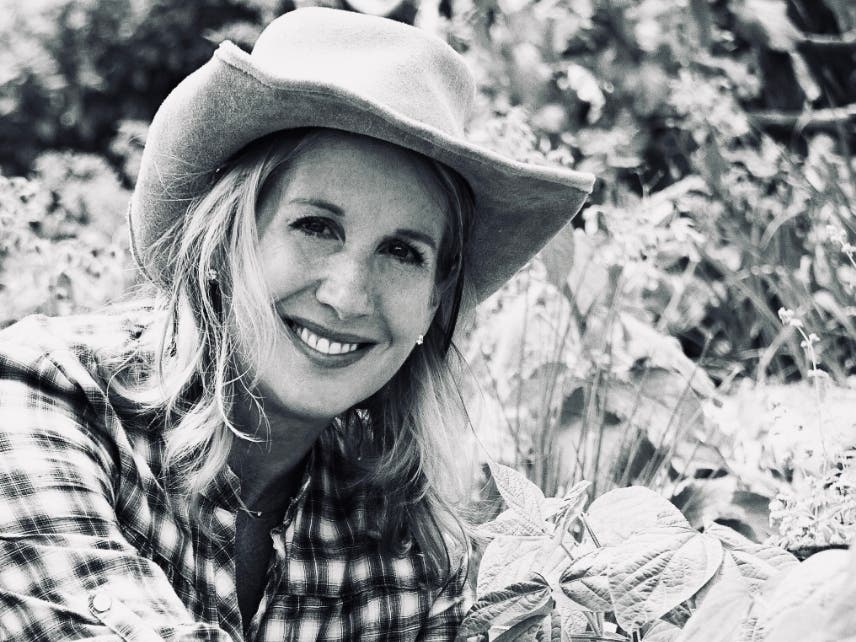Community Corner
Where Have All The Weston Farms Gone? One Farmer Has The Answer…
It's tougher than ever to hold on to a farm in Weston. But some groups are working to fix that.

WESTON, CT — Homeowners in Weston can't help but notice that their property values continue to soar.
Less obvious is what effect that is having on the area farmlands.
Michelle Fracasso owns and operates Wells Hill Farm, the last working farm with livestock in Weston, a town famous for its farms. She said those farms, with those barns and silos you found so enticing when you first decided to move to Weston, aren't likely coming back.
Find out what's happening in Weston-Redding-Eastonwith free, real-time updates from Patch.
"The problem in southern Fairfield County is that we've lost so much farmland because of the valuable real estate," Fracasso said.
It's not so much the farmers who are hanging up their hoes and cashing in, it's their heirs. Farming is hard work.
Find out what's happening in Weston-Redding-Eastonwith free, real-time updates from Patch.
But there's hope. Organizations like Aspetuck Land Trust, known for preserving local woodlands, are stepping up to help preserve farmlands as well.
"We're seeing this a lot of in Vermont, and California, we see it in other areas where, thankfully, there's a trust that's able to move quickly with enough resources, to try to outbid a developer," Fracasso said.
Speed is often the deciding factor. Land trusts and other conservation organizations typically don't have the cash on hand to close the deal as quickly as the "millennium mansion" builders.
"That is why we lose so much. The developers are there with money."
The state, too, has begun to make conservation of farmland a priority. The Connecticut Department of Agriculture awarded 33 farms transition grants totaling $515,953 last year. The funds are intended to "strengthen the economic viability of Connecticut farmers and agricultural cooperatives seeking to expand, diversify, and improve their existing operation."
In addition to managing all the goats, sheep, and chickens at Wells Hill Farm, Fracasso is on the advisory board for Lachat Town Farm in Weston. She is also on the board of the Fairfield County Farm Bureau, and on the board of Aspetuck Land Trust.
The former journalist claims farming is in her DNA. Her great-grandmother was an immigrant who came over from Hungary in 1910.
"And the first thing she did when she left New York City was buy 100 acres in the Port Jervis, New York area. And so I grew up around farms." That experience of being "immersed in agriculture and the woodlands" left an indelible impression, one she is keen to see embedded within future generations of Weston farm children.
Future Weston farm children may not recognize their family farms, if they are to adapt to climate change, Fracasso said.
"Every year, it gets just a little harder, when we don't have the right kind of winters, and we have too much rain or drought," the farmer said. "Agriculture is a huge contributor to that problem, when we are farming conventionally — degrading the soil, and using toxic pesticides and herbicides and poisoning the water and the soil and the wildlife and obliterating the beneficial insects."
Wells Hill is decidely not farming conventionally. Aspetuck Land Trust recently awarded its owner the 2023 award for Native Landscape of the Year. Fracasso said she has planted hundreds of pollinator friendly plants and shrubs attracting bees, butterflies, and birds, all 100 percent pesticide-free.
That type of progressive farming can get expensive, and is not for everyone.
"Many people that I know in farming in Connecticut, who are incredible farmers, generous people, they just cannot grow without the use of certain pesticides," Fracasso told Patch. "And they cannot afford to lose their livelihood."
As vital as organic farming is to the health of the land, today, Fracasso taps regenerative agriculture as the future of her industry. That new, holistic approach to farmland management draws upon cover crops and the use of livestock to keep the soil vital and enriched. The process takes more time, money and skills.
"It certainly is a lot easier to continue business as usual," Fracasso said. "But you know, as a country, we've done that, and I don't think it's working for us."
Get more local news delivered straight to your inbox. Sign up for free Patch newsletters and alerts.